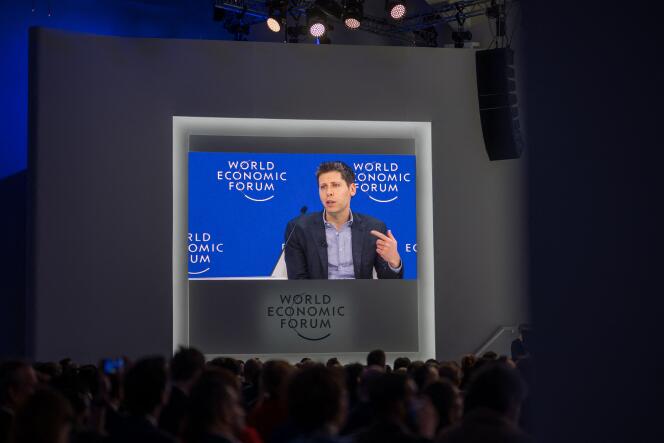


Everyone was waiting for Sam Altman to speak at the World Economic Forum (WEF) in Davos, Switzerland, and when he did, CEOs in attendance got their phones out to film the event. When Altman speaks, it's as if his words are in a hurry to get out of that seething brain. He loses his gaze as his eyes fix on his thoughts. The CEO of Open AI, behidn ChatGPT, was the messiah of the WEF. Altman embodies the new, game-changing revolution that businesses have long been waiting for: Artificial intelligence (AI).
Everyone wants AI. Albert Bourla, CEO of pharmaceutical giant Pfizer, highlighted the importance of AI for designing new molecules and speeding up testing. The CEO of Accenture, the world's leading consulting firm, Julie Sweet claimed that all industries would be affected. Even activists from Transparency International, the anti-corruption organization, are using AI to identify illicit financial circuits in Mexico.
What is all the fuss about? The answer can be summed up with one word, productivity. "I think our estimate is a little over $4 trillion in global productivity per year by 2030," said IBM CEO Arvind Krishna. It is the promise of designing a molecule or producing a car in half the time that gets manufacturers excited. "I don't know a single CAC 40 company that isn't deploying artificial intelligence," said Alexis Combessie, founder of start-up Giskard, which offers testing and verification tools in the field.
As he explained, artificial intelligence solutions have been around for a good 10 years, answering questions on Google, translating text and managing logistics flows. But what has changed is training, or the P in GPT (Generative Pre-trained Transformer). Previous software started from scratch and trained itself as it was used, like a search engine. Today's programs are trained on billions of data sets before they are even put to use. That explains their ability to generate texts and images, which are products of their prior education.
This necessary training requires days and weeks of intensive calculations in ultra-powerful data centers. Hence the cost and difficulty of producing the famous foundation models that form the heart of the systems. Experts at BlackRock, the world's leading investment firm, estimate that the eight major global players in the cloud – the data centers disseminated around the world – will have to invest a cumulative $160 billion by 2024, just to increase their capacity to meet this new demand.
Open AI is far from being alone in this anticipated revolution. Hundreds of thousands of models are circulating in the free software community. The French-American company Hugging Face lists them and makes them available on its platform, the basic building blocks that allow the bold to try their luck. The French community is pretty well placed in this race. Founded less than a year ago, Mistral, an OpenAI rival, has already carved out a worldwide reputation, which was seen at Davos. It's the first name to emerge as a competitor to Sam Altman's company.
You have 45% of this article left to read. The rest is for subscribers only.
